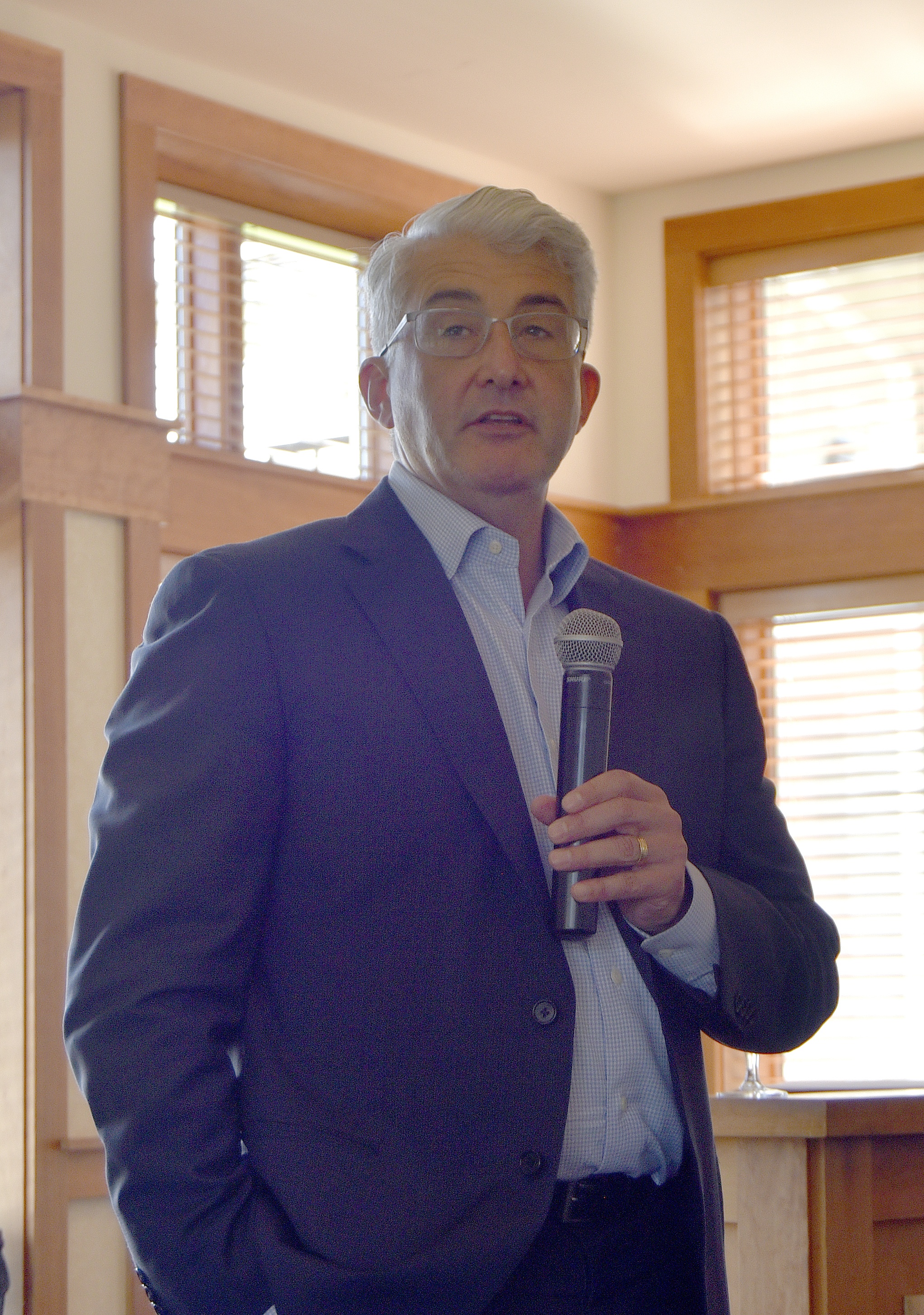Education, and its impact on the development of Washington State’s workforce, is the top priority for Bill Bryant (R), who is challenging Governor Jay Inslee for that office in the November election.
“We have a real skills gap in this state,” Bryant told the audience at the Snoqualmie Valley Chamber of Commerce candidate forum, Sept. 28. The gap will lead to between 10,000 and 45,000 jobs annually going unfilled in the next decade, Bryant said. “If we want to keep jobs in Washington state… and if we want to deal with one of the highest unemployment rates in the country… then we need to close this skills gap.”
Bryant appeared at the event without his opponent and spoke informally, answering questions from moderator William Shaw, Valley Record Publisher.
His second priority was regulation reform. The state, he said, piles new regulations on top of the old, without considering the need.
“We need to take a step back and look at whether or not we have a regulatory regime that is meeting the needs of businesses, that’s protecting the consumers, that’s protecting the environment and isn’t any more onerous than necessary… that’s why on the first day, I’m going to announce a moratorium on all new regulations, until the departments can justify the ones we’ve got.”
Third, he wanted to create a package of small business tax relief options. He described his background, as a small businessman before becoming a Seattle Port Commissioner. He had a lot to say about business needs, including the state’s “culture of no,” that was hampering the efforts of many businesses.
Asked about state incentives for businesses, Bryant said they are “entirely appropriate at certain times,” and allowed that the 2013 subsidy package for Boeing was “probably appropriate, on the other hand, I think it’s probably not the deal I would have cut.”
Bryant did not support a flat minimum wage for the state, saying it should vary by region, and according to where inflation and costs of living rates are increasing.
“I’m afraid if we take a minimum wage that’s a one-size-fits-all, we’re going to hurt the very people we’re trying to help,” he said. “They’re going to have their hours cut, or their benefits cut, or they’re going to lose their jobs.”
On the question of fully funding education, Bryant criticized the governor for his lack of leadership on addressing the education funding gap. He also said he sees the McCleary decision as an opportunity, to really define what education should look like in the 21st century.
“Let’s think about what kind of a school system do we need to guarantee a 90, or 95 percent graduation rate?”
Bryant did not support the ST3 proposal for light rail, saying it failed all of his tests for a public transportation projects, flexibility, affordability, feasible in the next six to 10 years, and something that gets people out of their cars.
“We could, within the decade, deliver a bus rapid transit system that meets the needs of this population and would cost us far less,” he said.
He did, however, recognize the need for improving transportation, to the benefit of businesses, the economy, the state’s ability to attract employers, and residents’ quality of life.
He promised that, if elected, during his administration, “The elimination or reduction of traffic jams is going to become the Washington department of transportation’s primary objective.”
Bryant also committed to a veto of any state income tax bill to come across his desk, if he were elected.



